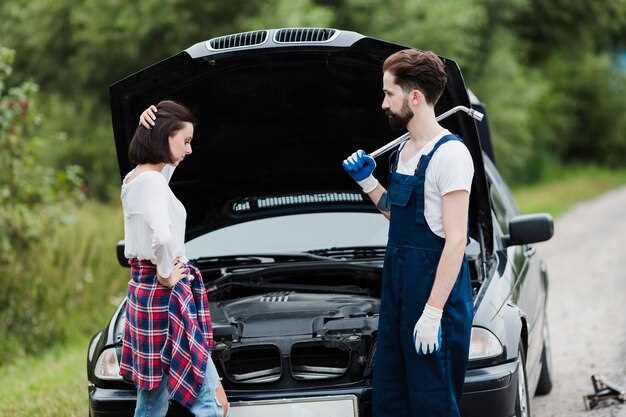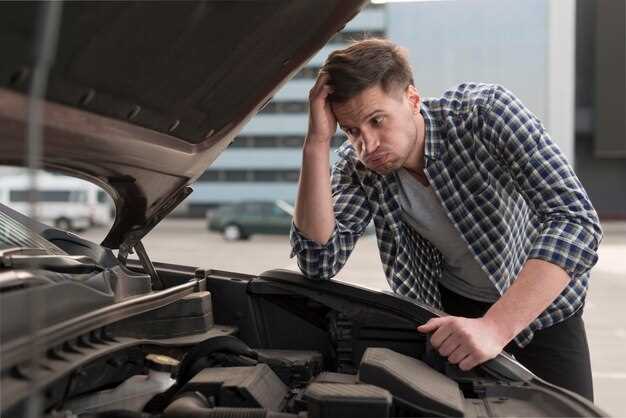Should you buy a damaged car for parts?

When considering the purchase of a damaged car for parts, it is essential to weigh the pros and cons. This approach can be beneficial for individuals looking to save money or find hard-to-source components. However, it also comes with its challenges and risks that can affect the overall value of the decision.
One of the biggest advantages of buying a damaged car is the potential cost savings. Salvage vehicles can often be purchased at a fraction of their market value, providing an opportunity to acquire high-quality parts at a lower price. Additionally, some car enthusiasts and repair shops utilize these vehicles to rebuild and restore cars to their former glory, making the parts a valuable resource.
On the other hand, there are significant disadvantages to consider. Not all parts of a damaged car will be usable, and the condition of the components can vary greatly. It can be challenging to determine which parts are salvageable without a thorough inspection. Furthermore, there may be legal and insurance implications when dealing with salvaged vehicles that must be addressed before making a purchase.
Buying a Damaged Car for Parts: Pros and Cons
Purchasing a damaged car for parts can be a viable option for those looking to salvage specific components or save money on repairs. However, it’s essential to weigh the pros and cons before making a decision.
| Pros | Cons |
|---|---|
| Cost-Effective: Damaged cars are often significantly cheaper than their functioning counterparts, allowing buyers to obtain parts at a lower price. | Unknown Condition: The extent of the damage may not be clear, leading to potential issues with the quality of the parts you aim to salvage. |
| Availability of Parts: Salvaged cars can provide access to hard-to-find parts that may be discontinued or expensive when sourced new. | Time-Consuming: Dismantling a vehicle for parts can be a lengthy process that requires patience and additional resources. |
| Environmental Impact: Reusing parts helps reduce waste and the demand for new manufacturing, contributing to a more sustainable approach. | Legal and Insurance Issues: There may be potential legal implications associated with the ownership of a salvaged vehicle, depending on local laws. |
| Learning Experience: Dismantling a damaged car provides mechanical experience and knowledge for future projects. | Storage Space: Storing a damaged vehicle and its parts can take up valuable space, which may not be ideal for everyone. |
In conclusion, buying a damaged car for parts can be beneficial if approached with careful consideration. The potential for savings and environmental benefits must be balanced against the risk of unknown conditions and the investment of time and resources.
Evaluating the Financial Benefits of Salvage Cars for Parts

Purchasing a salvage car for parts can offer several financial advantages. Understanding these benefits can help you make informed decisions when considering such a purchase.
- Cost-Effective Components: Salvage cars often come at a significantly lower price compared to new parts. This allows you to save money when sourcing parts for your vehicle restoration or repair projects.
- Access to Rare Parts: Some older models may have discontinued parts that are hard to find. Salvage cars can be a goldmine for these rare components, providing valuable options without the inflated costs of aftermarket replacements.
- Potential for Multiple Uses: A single salvage car can be a source for various parts, including engines, transmissions, and body panels. This multi-use aspect maximizes your investment and saves you from needing to buy multiple new parts.
- Resale Value: Selling usable parts separately can recoup your initial investment. Many people successfully turn salvage cars into profit by selling parts individually, especially if the car has components in high demand.
- Environmental Considerations: Using salvage cars for parts promotes recycling and reduces waste. This environmentally friendly choice can sometimes result in lower costs if local regulations offer tax benefits for using recycled materials.
In conclusion, evaluating the financial benefits of salvage cars for parts reveals that they can be a practical choice for those looking to save money on vehicle repairs and upgrades. By carefully assessing the condition and potential parts of the salvage vehicle, buyers can make savvy purchases that lead to significant savings.
Identifying Quality Parts in Damaged Vehicles
When considering the purchase of a damaged car for parts, it is essential to identify quality salvage components that can be reused or resold. First, examine the vehicle’s overall condition, focusing on areas where damage is minimal and parts are still intact. Critical components to inspect include the engine, transmission, suspension, and electrical systems.
Look for signs of wear and tear on essential parts. Rust, corrosion, and heavy dents can indicate that a component may not perform well. It is also advisable to check for any previous repairs that may not have been done correctly. Quality parts often come from vehicles that have been well-maintained prior to the accident.
Utilize diagnostic tools to assess the functionality of the car’s critical systems. This includes checking the onboard computer for error codes related to engine performance and other key indicators. If possible, test electronic components such as sensors and entertainment systems to ensure they are operational.
When it comes to body parts, evaluate whether they can be repaired or need replacement. Salvaged body panels can be a great option as long as they are free from significant dents or rust. Verify the alignment of these parts to ascertain that they were not part of a structure compromised by a significant collision.
Documentation plays a vital role in confirming the quality of salvage parts. If available, obtaining a vehicle history report can supply insights into the damage type and extent, as well as previous ownership. Transparent documentation helps in making informed decisions about which parts to salvage and reuse.
In summary, identifying quality parts in damaged vehicles requires a thorough inspection of the car’s condition, diagnostics for critical systems, and reviewing repair histories. By taking these steps, buyers can ensure they acquire valuable parts that serve their needs effectively.
Navigating Legal and Insurance Considerations for Salvage Purchases

When considering the purchase of a damaged car for parts, understanding the associated legal and insurance implications is essential. Salvage vehicles often come with specific titles and designations that may affect their eligibility for use and resale. It is important to check the title status before purchasing; terms like “salvage,” “rebuilt,” or “junk” can indicate significant limitations on how the vehicle can be used or transferred. Ensure that all documentation is accurate to avoid legal complications in the future.
Insurance considerations also play a critical role in salvage purchases. Standard auto insurance policies may not cover damaged vehicles or those that have been declared salvaged. Contact your insurance provider to understand how buying a salvage car impact your coverage. Some insurers may offer specialized policies for parts vehicles, but these often come with restrictions and higher premiums. It is vital to weigh the cost of parts against potential insurance expenses.
Additionally, state regulations can vary significantly regarding salvage vehicles. Some regions require inspections before a salvage car can be registered or put back on the road. Familiarize yourself with local laws to ensure compliance. If you plan to dismantle the salvage vehicle for parts, confirm that you adhere to environmental regulations governing the disposal of hazardous materials. This knowledge is crucial not only for legality but also for maintaining safety standards.
In summary, a thorough understanding of both legal and insurance considerations is imperative when purchasing a damaged car for parts. Ensuring compliance with title regulations and securing appropriate insurance coverage can safeguard you from potential liabilities while maximizing the benefits of your salvage purchase.

